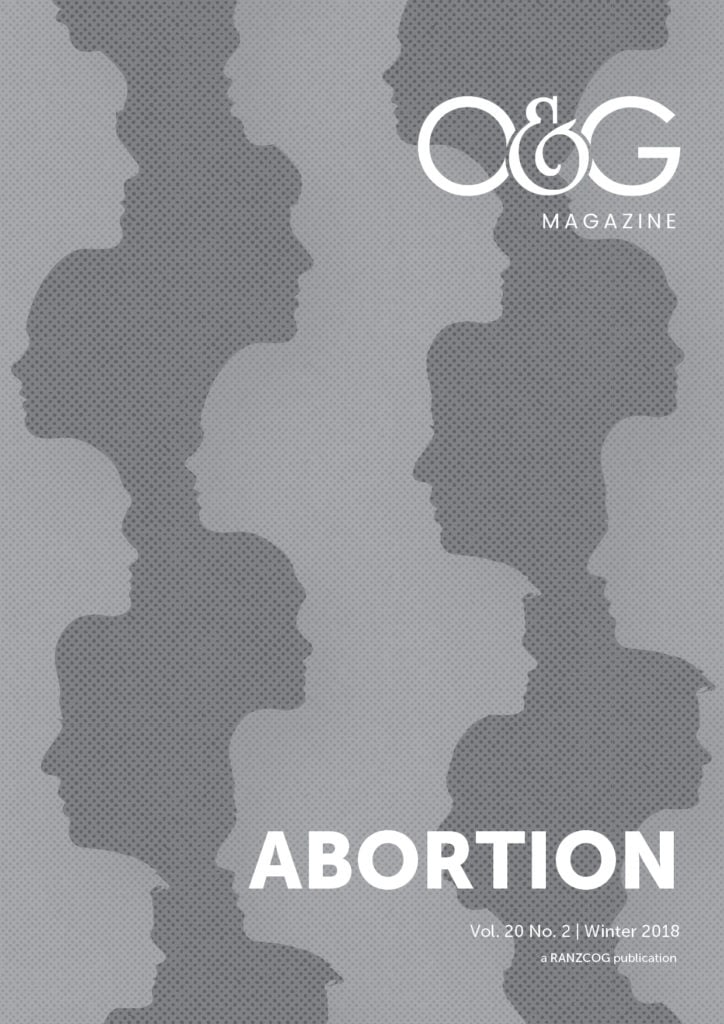Abortion is one of the most divisive moral issues of our time. Since the middle of the 20th century, when surgical abortion became more common in Western countries, there has been intense philosophical debate about its ethics. Abortion demands that we explore some of the most fundamental debates in philosophical ethics, such as whether it is ever acceptable to kill another person; whether the rights of one person (such as a mother) can trump the rights of another (such as a fetus); and whether human life has intrinsic value.
My aim is to provide an overview of just one subset of arguments: the personhood of the fetus. The strengths and weaknesses of two well-known personhood arguments will be considered. My central contention is that both ‘pro-life’ and ‘pro-choice’ concepts of personhood of a fetus lead us to conclusions that are difficult to accept. A view that attributes personhood to a fetus implies that all forms of abortion, including embryonic deaths caused by contraceptives, are morally wrong. A view that denies the fetus the rights of a person can be invoked to justify more than abortion. It has, on several occasions, been used as a justification for infanticide.1 Considering how radical the implications of these two positions are, the majority of people adopt a hybrid account of the personhood of a fetus: an embryo is considered a non-person, whereas a late-term fetus is sufficiently developed to be considered a person.
The central divide
Political debates about abortion revolve around the question, ‘Is a human fetus a human being?’ Yet, in academic philosophical discussions about abortion, the question of humanity of the fetus is largely uncontroversial. Most academic philosophers argue that the fetus should be considered part of the human species, as it shares our genetic code, and, if unimpeded in it’s development, will grow and mature into an adult human being. There are exceptions to this view. Philosopher Michael Sandel argues that a fetus is distinct from an adult human being.2 However, it is notable that some of the best-known defenders of abortion, such as Peter Singer and Jeff McMahan,3 concede that a fetus is, at the very least, a human organism. That is to say, a fetus is a member of the species of homo sapiens.
This fact alone, however, does not settle the question of the moral status of the fetus. Singer notes that, ‘The biological facts on which the boundary of our species is based do not have moral significance’.4 Most arguments for abortion stand or fall on a different question, namely, ‘Is the fetus a human person?’
Personhood is believed to be the ground of the special moral status that human beings enjoy. ‘Persons’ have the capacity for acquiring a sense of self and engaging intelligently with the external world. Beings capable of these operations are worthy of special respect (or so the argument goes). If personhood is the ground of moral status, it is, therefore, of crucial importance to determine whether the fetus is a human ‘person’. If the fetus is a ‘person’, then it should be accorded the same rights and privileges as are enjoyed by adult human beings. If it is not a ‘person’, it need not be.
Two conceptions of personhood are dominant in contemporary philosophical literature. The first is a view that personhood is equivalent to ‘rational self-awareness’.5 Personhood, therefore, refers to the ability of living things to apprehend the world around them: to use language; to have a sense of self; to have preferences and desires; and to have plans for the future. The archetype of this personhood is a fully competent adult human being, who has a rich sense of personal identity, aspirations and goals, and relationships with significant others. According to proponents of this view, a person comes into existence when they develop the proximate capacity for engaging in these sorts of activities (such as when toddlers start to get a handle on conventional language and develop a sense of self).
The alternative view of personhood focuses not on the proximate capacities of a being, but rather on more radical metaphysical capacities that an entity has. From this perspective, a person is a being that has the radical capacity to develop into an adult human being capable of the sorts of activities listed above (the use of language, the development of a sense of identity, and the fostering of relationships with others). What a ‘thing’ can become is considered more significant than what a ‘thing’ already is. This concept is referred to as ‘potentiality’ in metaphysical terms. Proponents of this alternative view of personhood argue that a fetus, though not capable of rational activity yet, nevertheless, has the potential to develop into a being capable of rational activity. It has the capacity to become a being of sophisticated operations, therefore it is a ‘person’.
These two views of personhood are ascribed various labels. The first is sometimes called the ‘Lockean view’, named after the 17th century philosopher John Locke, who inspired much of the literature on this kind of personhood. The second is the ‘Aristotelian view’, named after Aristotle, the ancient Greek philosopher responsible for the notion of metaphysical potentiality.
These two views of personhood, one counts the fetus as a person and one does not, lead us to different conclusions about the moral status of the fetus. In one view, the fetus is a person and has the same special moral status as an adult human being. In the alternative view, a fetus is not a person and, while it may have some sort of moral status, does not have the same rights and privileges as a fully developed human being.
In the Lockean view, abortion does not involve the termination of the life of a person. All other things being equal, abortion is therefore morally permissible. In the Aristotelian view, abortion is morally as serious as terminating the life of an adult human being, as both an adult and a fetus are people.
Objections and nuances
Both positions have been subject to strong and sustained criticism since they were first expounded. The Aristotelian view is seen by many as being overly dependent on vague metaphysical terminology. Ideas such as ‘potentiality’ are difficult to accept for people living in a post-Enlightenment age that is generally suspicious of essentialist conceptions of human nature. It is also difficult to accept its implications in the context of embryonic deaths caused by contraceptives. The Aristotelian view leads us to see abortifacient contraceptives as being just as morally reprehensible as a third-trimester abortion. This would be an unacceptable conclusion for most people in societies where contraception is widely used and generally seen as being morally unproblematic. The Aristotelian view also leads us to regard spontaneous abortion as being just as tragic as the death of a post-birth human being. Yet sociologically, we do not mourn the death of a fetus in the same way we mourn the death of an infant or toddler. The Aristotelian view is counter-intuitive in this respect.6
The Lockean view, however, invites what may be even stronger objections. It supposes that only those individuals who have preferences, a sense of identity and a grasp on language have special moral status. This has radical conclusions for the way we treat infants, intellectually disabled people and the demented elderly. Where someone has either not yet developed or lost the capacity for rational and free activity, can we treat them as we treat other animals? This sort of question is often dismissed as a form of scaremongering. Yet, Italian philosophers Alberto Giubilini and Francesca Minerva answer it in the affirmative, and have argued in favour of post-birth infanticide up to two years of age.7 The Lockean view, in this sense, seems to be ageist and ableist in the extreme. It is not only philosophically implausible, it is close to horrifying.
Conclusion
This discussion is a far cry from the empirical commentaries typically published in O&G Magazine. Yet, it is crucially important to step back from the neutral language of empirical analysis and consider the ethical issues attendant to practices in obstetrics and gynaecology. Ethics performs the important task of making us less complacent in our moral views. Many readers may be in favour of abortion up to some point. Yet, honest ethical reflection on the issues will hopefully lead us to acknowledge the difficulties involved in defending a ‘pro-life’ or ‘pro-choice’ position on abortion. Awareness of this will hopefully lead people to refrain from glib, rhetorical dismissals of viewpoints that conflict with their own.
Ultimately, most people adopt a hybrid account of personhood, according to which an embryo is a non-person, while a late-term fetus is a person. Embryos have no capacity for sentience (yet alone consciousness), whereas a late-term fetus has basic capacities for processing stimuli from the external world. The main question for defenders of this hybrid position is whether these biological differences can be translated into a morally defensible position on early abortion. Singer and McMahan are suspicious of arguments that use biological facts to justify moral positions on abortion.
References
- See, for example, Michael Tooley. Abortion and Infanticide. Philosophy and Public Affairs. 1972 2(1):37-65; Alberto Giubilini and Francesca Minerva. After-birth Abortion: Why Should the Baby Live? Journal of Medical Ethics 2013 39:261-263.
- Michael Sandel. Embryo Ethics. The Moral Logic of Stem Cell Research. New England Journal of Medicine 2004 351(3): 207-209.
- Peter Singer. Practical Ethics 3rd ed. London: Cambridge University Press, 2011; Jeff McMahan. Killing embryos for stem cell research. Metaphilosophy 2007 38:170-89.
- Singer 2011, 75.
- Cf. Singer 2011, 74-75.
- For a response to this criticism, see John Finnis, ‘Abortion and healthcare ethics’, in Peter Singer and Helga Kuhse (eds), Bioethics: an anthology hoboken: Wiley 2016. 15-22;17.
- Giubilini and Minerva 2013.






Leave a Reply